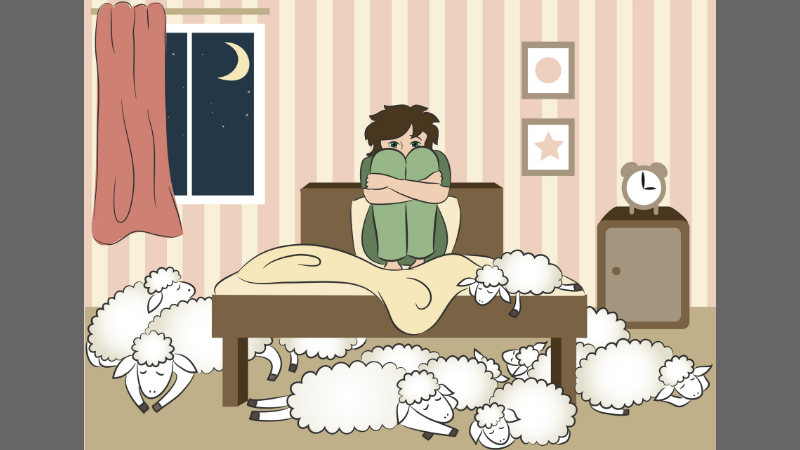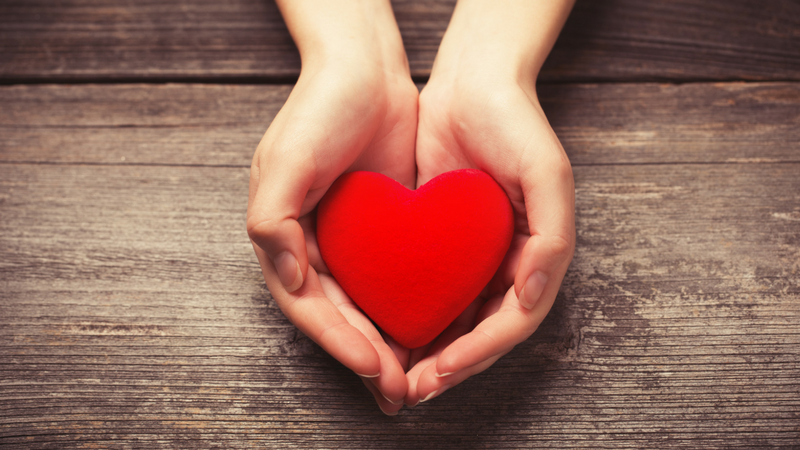Sleep Hygiene Tips for Good Rest
I grew up in an era when pulling all-nighters for school and work were signs of a productive and highly-dedicated person. Telling someone that I only got three hours of sleep the night before earned me praise and rewards. Sleep hygiene wasn’t a phrase that existed at that time.
It was the same with working extra hours (usually off-the-clock) for work. It wasn’t that I needed the extra time to get my work done, but that I was ambitious and wanted to do whatever it took to get ahead.
Both of these thoughts touch back to wanting to impress the authority figures over me. As a source of motivation, that’s not terribly healthy.
Here’s another area where my bipolar disorder was no help: Periods of mania/hypomania are typically marked with insomnia coupled with no loss of energy. These experiences led me to believe I was just “built this way,” and that I wasn’t harming anything with my habits.
What I didn’t realize at the time was how severely my lack of sleep was negatively impacting my productivity. It wasn’t terribly unusual for me to look back on a piece of work a couple months later and wonder, “What was I thinking?”
Often these were silly errors, like changing a 2 to a 5 on a phone number, or writing “CS” instead of “CA” when cleaning up the State field in a database.
I first realized the importance of good, consistent sleep hygiene when my daughter, Harper, was diagnosed with ADHD. One of her challenges was falling asleep, and that challenge was exaggerated when she started her medication. (Insomnia/trouble falling asleep is a common side effect in most of those prescriptions.)
She would spend literally hours in her bed, restless and often banging her hands or her feet on the wall. It wasn’t unusual for her to be awake at midnight.
She raided the pantry and wandered the house at odd hours of the night. She would watch tv until she got tired.
Out of frustration and concern, we installed motion detectors to let us know when she was up and about the house and a special connector to the outlet for the tv, so it only works during the day. It helped some, but not a lot.
Naturally, waking her back up in the morning was a massive challenge and our mornings were nightmarish (and I don’t use that word lightly).
This is when the idea of sleep hygiene entered my world.
With the aide of our behavior therapist, we worked with Harper to put her on a clear bedtime routine with good sleep hygiene. An hour before bedtime, screen time was over, and it was time to get in her pajamas and brush her teeth. Next, we had her prep her bed and take some melatonin.
Then, it was 45 minutes of quiet time – either working on a puzzle, or reading, or some other mild activity that wouldn’t excite her brain. Then, at bedtime, we checked the temperature of her room and turned out all the lights.
It took about a month or so before we saw a real change. Once Harper’s body got accustomed to the routine, she started to fall asleep at 10. Then at 9:30. Now, she’s regularly asleep within 15 minutes of her bedtime. While she occasionally has a bad night or two, those are rare.
The benefits of having good sleep hygiene are pretty clear: Harper is more effective at regulating her emotions, has better focus, produces stronger quality work, and the amount of contact I have with her teachers over classroom behavior is practically non-existent.
Sounds like magic, right?
Helping Harper threw my own sleep hygiene into sharp relief. I was watching tv until 10 and then heading straight to bed, where I would mess around on my phone for a half-hour before reading. I slept in a messy bed and would regularly toss and turn until one or two in the morning.
Even on the nights where I got a full eight hours of sleep, I awoke perpetually exhausted. My eyes would burn, and I knew I was getting light sleep. I had no dream life, a sign of poor sleep.
The first aid I had was my medication. As insomnia is a symptom of bipolar disorder, getting my prescription dialed in meant that I started yawning at 8 o’clock at night. It was disorienting at first.
With Harper finally sleeping earlier, I felt more comfortable going to sleep early myself. I implemented a bedtime routine that for me includes showering, brushing my teeth, and reading in bed. I also keep a fan by my bed that cools me; the white noise also helps me fall asleep.
Even with all these changes to my sleep hygiene, I was still getting poor sleep. At this point, I worked with my doctor, and we did a sleep study, which determined that I have mild sleep apnea.
I made a few additional changes of sleeping with a wedge pillow or a CPAP machine and the rest of the dominos fell into place for me.
However, with my work for Wounded Birds Ministry and publishing the devotional, my insomnia came roaring back. My stress levels were high, and the lack of sleep only exaggerated my stress.
Also, it triggered a hypomanic episode (which then boosted the insomnia, ugh) and my irritability was through the roof. I stopped cooking and cleaning because I was too tired and I made easily-avoidable mistakes in my work.
I reached out to my psychiatrist to increase the dosage of my medication.
Instead, he asked that I work fewer hours and reduce my stress levels, and then he prescribed a sleeping pill to help me in a worst-case scenario.
Those additional changes helped, and I just realized as I’m writing that I haven’t taken a sleeping pill in a couple of months. That’s exciting for me!
One thing I had to do to have success was getting over my mindset that I’d already tried these things and they didn’t work for me. The reality is that I made half-hearted efforts and didn’t commit to change. Trying one thing for three days does not a change make.
If your sleep is struggling, I encourage you to take a hard look at your sleep hygiene and consider some changes.
Here’s the advice we received and the thinking behind it:
– Set (and keep) a regular bedtime.
When your body knows that you go to bed at a particular time, it programs itself to prepare for sleep at that hour. It’s an easy way to get your body to help you out.
– No electronics for at least an hour before bed.
Televisions, cell phones, and even Kindles (I know, I know!) emit blue light, which is a signal to our bodies that it is time to be awake. To be honest, I still read my Kindle before bed, but I also keep the contrast on a really low setting to minimize the amount of light I’m exposed to.
Also, watch out for nightlights and reading lights for blue light. It can help to switch out your light bulb if you find reading before bed to be helpful.
– Establish a strong bedtime routine.
I shower, brush my teeth, and turn down my bed in preparation for bedtime, and I tidy up the house. This ritual not only makes sure I have a smoother morning, but the routine is another signal to my body that bedtime is coming and encourages the production of melatonin, the sleep hormone.
– Avoid energetic activities in the evening.
This includes reading highly-engaging books and exercise. These activities stimulate our brains and inhibit the creation of melatonin. I’ll add to this that I especially avoid scary shows and movies that are likely to replay themselves in my mind before I sleep.
– Watch your nutrition.
Caffeine is a known stimulant and should be avoided after 6pm. Avoiding food (especially sugar) after 8pm means that our bodies aren’t processing an input of energy at a time when we are trying to shut down.
Alcohol, although it feels relaxing, creates poor sleep, and smoking stimulates our system. Avoiding these substances helps our bodies calm more quickly.
– Watch the temperature in your room.
Scientifically, the ideal temperature for our bedrooms is 68’. The cold temperature helps our bodies shut down, and then we heat back up as we sleep. The exact temperature that works for you may be higher or lower, so this is definitely a good area to experiment.
OK, so those are the most common pieces of advice.
Here are a few more from my experience:
– Don’t be afraid to take melatonin.
Melatonin is the sleep hormone that our bodies produce. Some disorders (like ADHD) inhibit the production of melatonin. Our psychiatrist told us not to shy away from melatonin for Harper. She doesn’t take it as often now, but if she is still up a half-hour past her bedtime, she will take it.
You can find melatonin over-the-counter at most drugstores.
– If you wake up in the middle of the night, don’t look at your phone. If you aren’t asleep within 15 minutes, try reading or a meditation exercise.
See above about the blue light issue.
– Work with your doctor if you are still tired.
Medical issues beyond mental illness can negatively impact our sleep patterns. My sleep apnea is one example, but there’s also Chronic Fatigue Syndrome and chronic pain. If you are still struggling with insomnia and/or getting quality sleep after putting in place a strong sleep hygiene regimen, it’s definitely time to look into alternative possibilities.
– Hide the clock or find a way to minimize watching it.
We have a clock that projects the time onto the ceiling. I love it because I don’t have to move to figure out what time it is, and that helps me get back to sleep faster.
If you are a clock watcher, it may make sense to hide the clock altogether. That way, you don’t have to calculate how much sleep you are actually getting. You know what I mean; those thoughts that say, “OK, if I fall asleep right now, I will get three hours and 15 minutes of sleep.”
– Watch the daytime naps.
The official recommendation is to limit naps to 20 minutes or so in the afternoon. If you’re in the habit of taking longer naps, it could be interfering with your nightly sleep schedule.
– Keep your routine on weekends.
This was the hardest one for me. As a young adult, I reveled in sleeping in on Saturdays after staying out late Friday nights. This habit interferes with the regular nightly routine that helps me get good overall sleep, so I’ve nixed it.
I know this is a lot of tips and it probably feels overwhelming. That’s not my intention. At the core of all these recommendations is a single idea: Make your sleep intentional by developing a consistent routine.
Having a strong routine will help drive all the other factors, getting you to a better place for your sleep. And getting good sleep will help calm your brain, reduce your stress, and help you feel overall better.
It’s incredible how good sleep hygiene makes a difference in our ability to manage our symptoms, and it’s one of the easiest areas for us to influence.
What does your sleep look like? Do you have a sleep routine? I’d love to hear in the Comments below!
Looking for daily inspiration and community? Join our warm and supportive Facebook group!










Hello!
My name is Justine and I’m passionate about health and well-being, and have always advocated for a positive and healthy lifestyle that improves physical and mental wellness. I am now a part of Made by Hemp, a small Michigan-based company dedicated to helping others improve their well-being through quality CBD hemp oil supplements and products, and providing the education that people need to make informed choices.
I work closely with our editorial team and I actively look for possible partners we hope to collaborate with. I came across your site woundedbirdsministry.com and went through your articles, and I feel like our content is something both our audiences would appreciate. You can take a look at one of our articles here:
9 Tips for Better Sleep Hygiene (Get Quality Rest!)
https://madebyhemp.com/better-sleep-hygiene/
Gdoc: https://docs.google.com/document/d/1AyBXVzFt_twKbL3XrC5aPTRO37qj6R4cwM8n6CPCqMw/edit?usp=sharing
I wanted to get in touch with you to see if we can work on a project that can help with the promotion of both of our sites. We could send you links to our articles, which we hope you could publish on your site, and in return, we could promote yours by sharing it with our Twitter subscribers. It can be a link to any of your articles or webpage, or an announcement or promotion that you would like to push.
Please do let me know if you’re interested, and I’ll be happy to discuss it further with you. I believe this partnership will bring value to both our audiences.
Thanks for your time and looking forward to hearing from you.
Cheers,
Justine
Hi! I love collaborating. Please feel free to reach out to me directly at teresa@woundedbirdsministry.com and let’s explore how we can share and uplift each other.